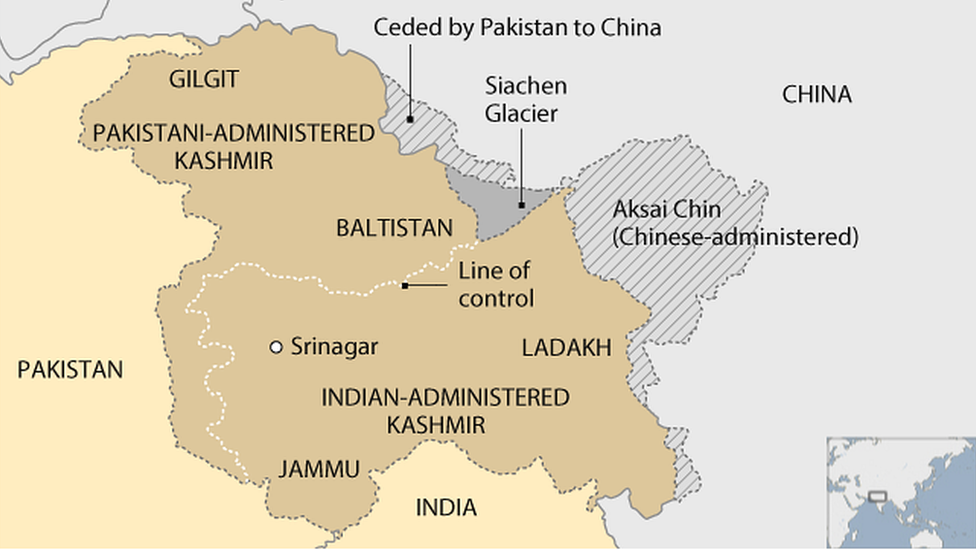Squeezed between two armies in divided Kashmir
- Published
"No one cares about us... we have nowhere to go"
On a forested hill on the Pakistani side of the disputed region of Kashmir there's a small village in Nakyal Sector.
The view from the remote village of the surrounding lush green mountains is scenic. But it can be deceptive.
The village happens to be located just a few hundred metres from the heavily militarised Line of Control, the de facto boundary dividing Kashmir between Pakistan and India.
The mountains are dotted with army check posts.
Random violence by trigger-happy troops is a constant threat here.
The most recent death came on 8 August. The victim was a young woman, a mother of a four-year old child.
The villagers were celebrating a family wedding at night when a sniper bullet shot her dead, says her husband, Tariq Mohammed.
"The fire came from there," he says pointing to an Indian army post overlooking the village. "They [the Indians] turned our celebrations into a mourning, and for no reason."
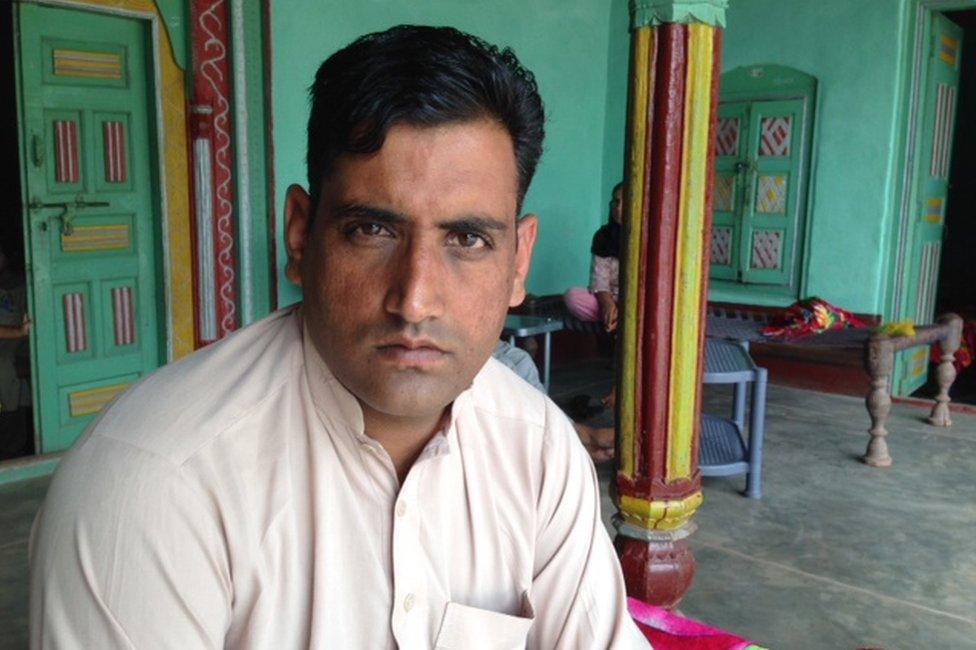
Mr Mohammed says he lost his wife when a sniper bullet killed her on 8 August
More than two weeks after the killing, Mr Mohammed is struggling to come to terms with his loss. He feels angry towards India, but also blames Pakistan for failing to protect its people.
"We are squeezed between these two armies and paying the ultimate price," he says. "They say they are fighting for Kashmir, but neither of them really cares about the Kashmiri people."
It's a similar story on the other side of the 740km (460 mile) Line of Control.
The two armies frequently trade heavy gunfire and mortars, violating a ceasefire agreed back in November 2003. Recent violence has left scores of civilians dead on both sides, with each blaming the other for "unprovoked" attacks.
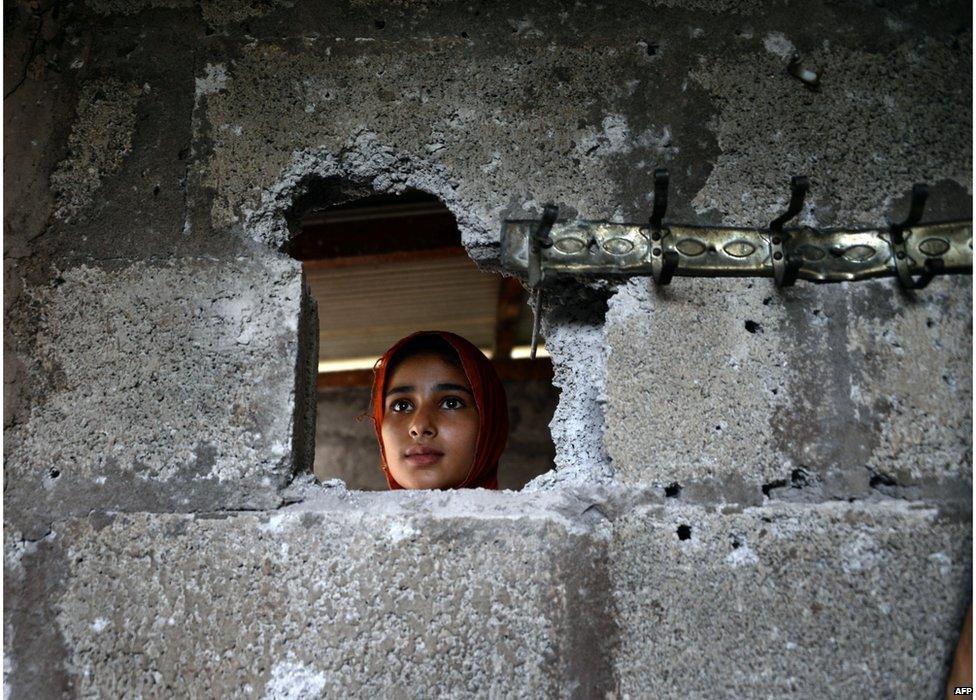
Mortar shells have damaged homes near the Line of Control, the boundary dividing Kashmir between Pakistan and India
After a 10-minute walk further up the hill, we pass through maize fields and a fresh water stream to arrive at another house.
There, we meet Javed Ahmed, a retired soldier. On a table in front of us, he lays out spent mortar shells and other Indian ammunition he has collected from attacks on his neighbourhood.
Over the years, he has lost his uncle in cross-border firing. In other attacks, some of his relatives were wounded, livestock lost and property destroyed.
"No one from the state government of Pakistan-administered Kashmir came to check up on us," he says dejectedly.
"We were never offered any monetary compensation, even though we are ones living on the frontline in Pakistan's fight with India over Kashmir."
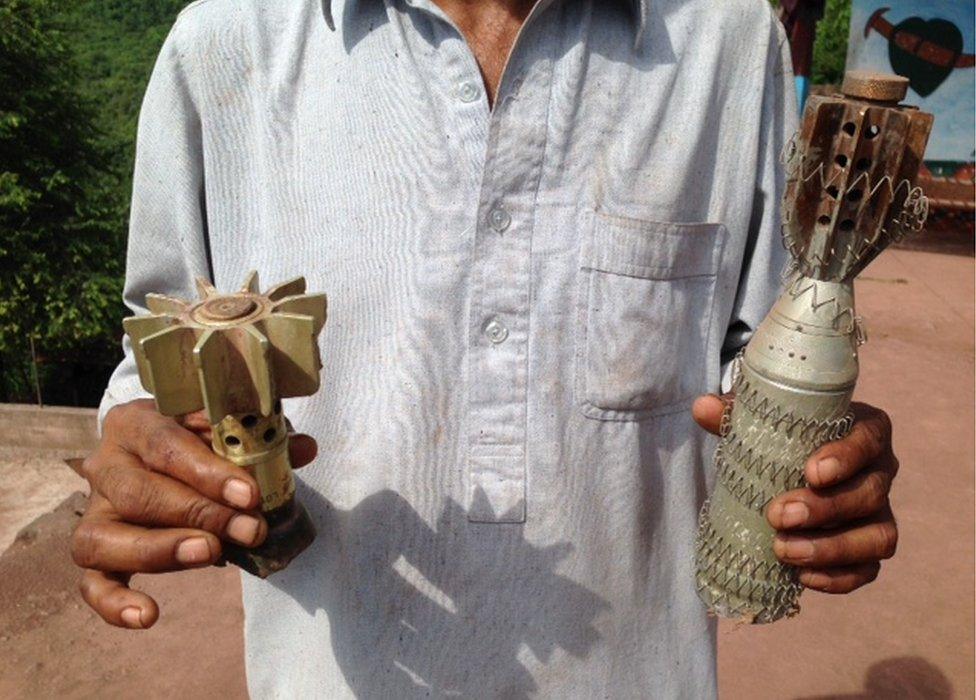
Mr Ahmed has collected ammunition from attacks on his village over the years
The fear and intensity of recent cross-border attacks was so unsettling, it forced hundreds of villagers to leave their homes in search of safer surroundings.
Since mid-August, about 260 families have relocated to the outskirts of Nakyal town, essentially taking over a hilly slope of tall pine trees to set up makeshift camps - mainly on a self-help basis.
But in the absence of any government help, the camps make for a miserable existence.
"My children are terrorised and traumatised by all that mortar shelling. Sometimes, they can't eat or sleep. I can't take them back to the village," says Zulekha Khatoon, a mother of four children.
Tears roll down her cheeks as she adds: "This is no way to bring up children. We feel like we've been abandoned by the (Pakistani) authorities."
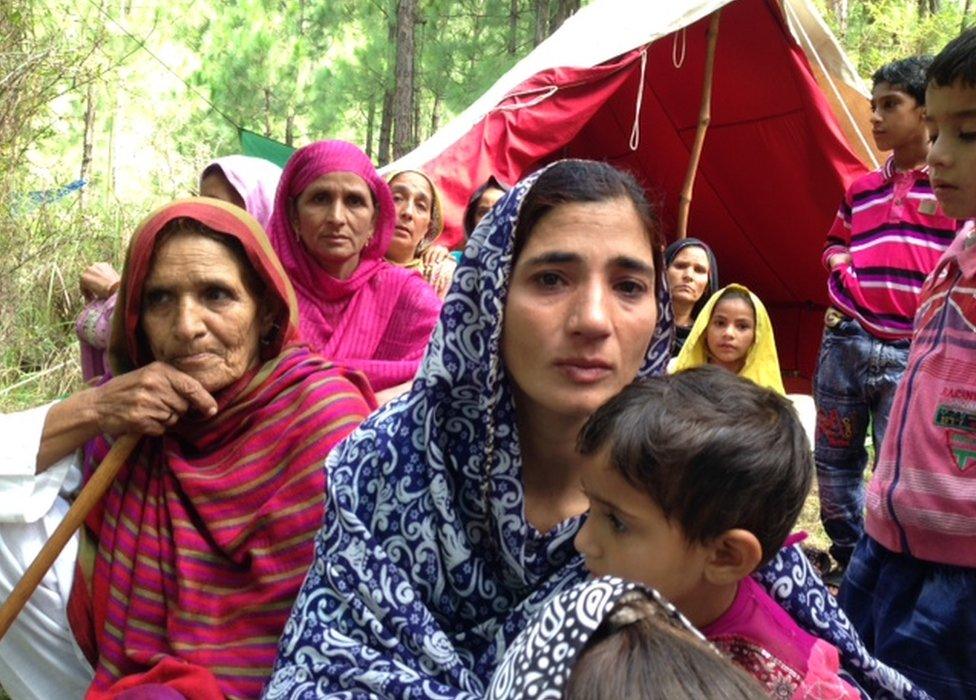
Ms Khatoon (centre) is one of many internally displaced people in the region
This feeling of having been let down is widely shared in Pakistani-administered Kashmir today.
One reason it probably goes unreported is because the Pakistani state likes to have a firm grip over its Kashmir narrative. It does this by denying independent journalists access to the region and by making it difficult for them to work there.
Many journalists reporting on Kashmir experience intimidation and harassment from the Pakistani army - something our team was also subjected to while we were there.
It seems the human cost of the Kashmir conflict on this side of the de facto border is greatly underestimated, and frequently hidden from the public eye.
- Published24 August 2015
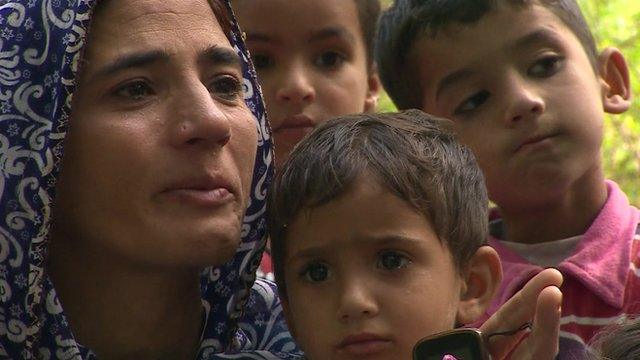
- Published10 March
